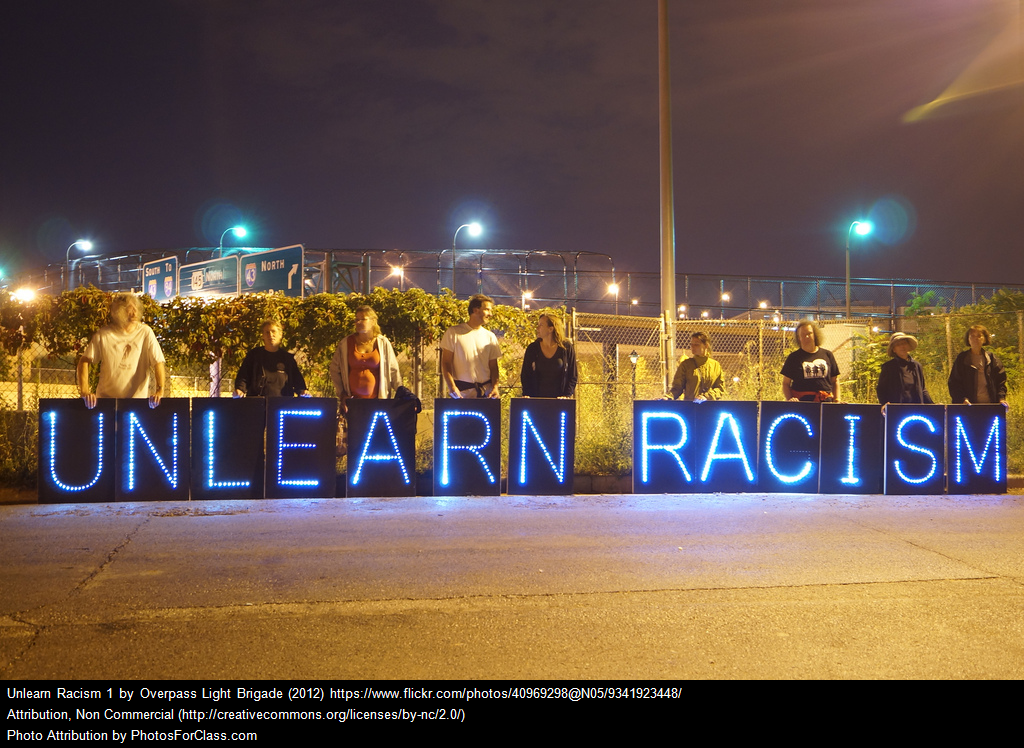We are failing our students by not learning how to talk about the N-word in our classrooms and our schools. It has become the policy of many schools to police the student’s use of the N-word in the hallways. Teachers and administrators standing in the hallway and barking orders at students, choruses of: “Don’t say that,” and “Take your headphones out!” rang throughout the hallways of my high school every single day. And yet, simultaneously, we were reading To Kill a Mockingbirdand The Adventures of Huckleberry Finn in English class. These are books that have become infamous because of their use of the N-word, have been banned in schools across the United States. We don’t know how to talk about the presence of the N-word in the texts that have become synonymous with high school English classes. We don’t allow our students to use it, but we force them to listen to Mark Twain and Harper Lee use it. It’s written in the stories we teach, and yet we don’t talk about it.
This was a topic that I was extremely excited to explore in my senior fall at Smith College where I was lucky to have the opportunity to enroll in a class entitled History of the N-Word with Professor Elizabeth Pryor. Only part of our semester was focused on the classroom, mostly about the use of the N-word by college professors and free speech. However, I was able to understand the importance of talking about the N-word in the classroom through the connections between incidents of white professors using the N-word in the classroom and the controversy that follows to the consequences of not having these difficult and complicated conversations.
The role of the teacher is to prepare students for the larger world around them. We are not accomplishing this goal when students leave school with no understanding of the N-word and the history associated with it. The N-word was not always a slur, but rather was first a word to describe social status. It wasn’t until it began to be reclaimed and used in the form of political protest by Black people that it became used as a slur by white people. The history of the word is just as complex as the modern dilemma of how to teach the N-word in high schools. When teachers fail to provide any context in this history when the N- word arrives in English class, our students don’t have any idea of the heaviness that comes along with the N-word and its history. We should be teaching our students about this complex history, so that they are able to understand their own usage of the word in relation to the literature that they are being asked to read in school.
I’m not arguing that students should be able to use the N-word in school, but rather that they should be able to understand why they aren’t using the word in school because when we ban the word, it might disappear from the classroom, but our students also miss the struggle with the violence and ideological complexities that underlie it. Our mixed messages create a complicated message for our students to receive about the N-word and in return, they leave high school with little to no understanding of the context of the N-word and its history, and they are forced to perpetuate the same not knowing that has gotten us into this position. We were never taught about the N-word when we were students, so we never learned how to talk about the N-word as teachers either, but there is plenty of space to develop this skill and become a better teacher for our students. Teachers, who are demographically mostly white middle-class women, who because historically, schools have not talked about the N-word, have never learned about how to have these conversations with their students.
The skills that we should ask of our teachers is tothink about the privileges they may hold and how these identities impact the lived realities of our students, most often implicitly. Resources to begin this process are slim, but as these conversations come to the forefront, are ever so important. There are resources on the internet about teachers beginning the process of recognizing their privilege. Writers like Ta-Nehisi Coates and resources for educators like Teaching Tolerance have begun conversations about the complexities and history of the N-word which are important resources to consult when planning on talking about the N-word in the classroom. Just as we don’t leave our identities behind when we enter school, who we are follows us inside, and the same is true of our students. The decisions that we make every day have a real-life impact on the lives of our students and what we decide to teach, how we form relationships with our students, and how we interact with their families plays an irreplaceable role in how our students come to view and exist within the world. Ending racism and associated violence within our communities begins by looking at what is taking place in our classrooms, and as educators, we have the power to start having these conversations and instilling this call to action in our students.
